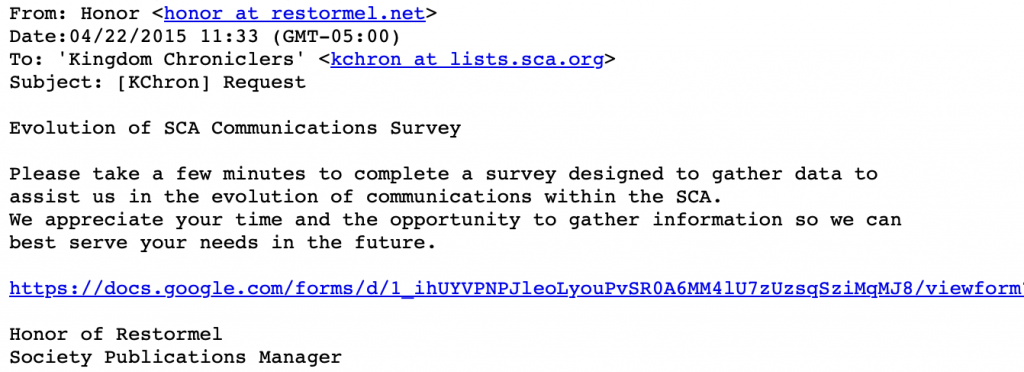TL;DR: If you write or manage software for the SCA, I’d love to get your feedback on this proposed license agreement intended to document the Society’s ability to continue using and maintaining the software even if you someday become unavailable.
Given the high proportion of technical professionals in the Society’s ranks, it is no surprise that the SCA has a long history of informal software development: folks developing small custom applications to facilitate some part of their office’s or local group’s operations. However, this process has by-and-large been uncoordinated, and policy for it has been slow to coalesce.
One recurrent issue in this area has been the lack of clear licensing practices. In a few cases, copyright has explicitly been transferred to the Society, but in the majority of cases the issue has not been considered, leaving the copyright in the hands of the original developer. In most cases, there is no written license agreement, which is usually fine while the original developer remains involved in local activities, but can become problematic if they move away or drop out of Society activities, as nobody knows for sure if the group has the right to to continue using the software, to make changes to it, or to share it with other branches of the SCA.
Continue reading “Draft Licensing Agreement for SCA Software Developers”